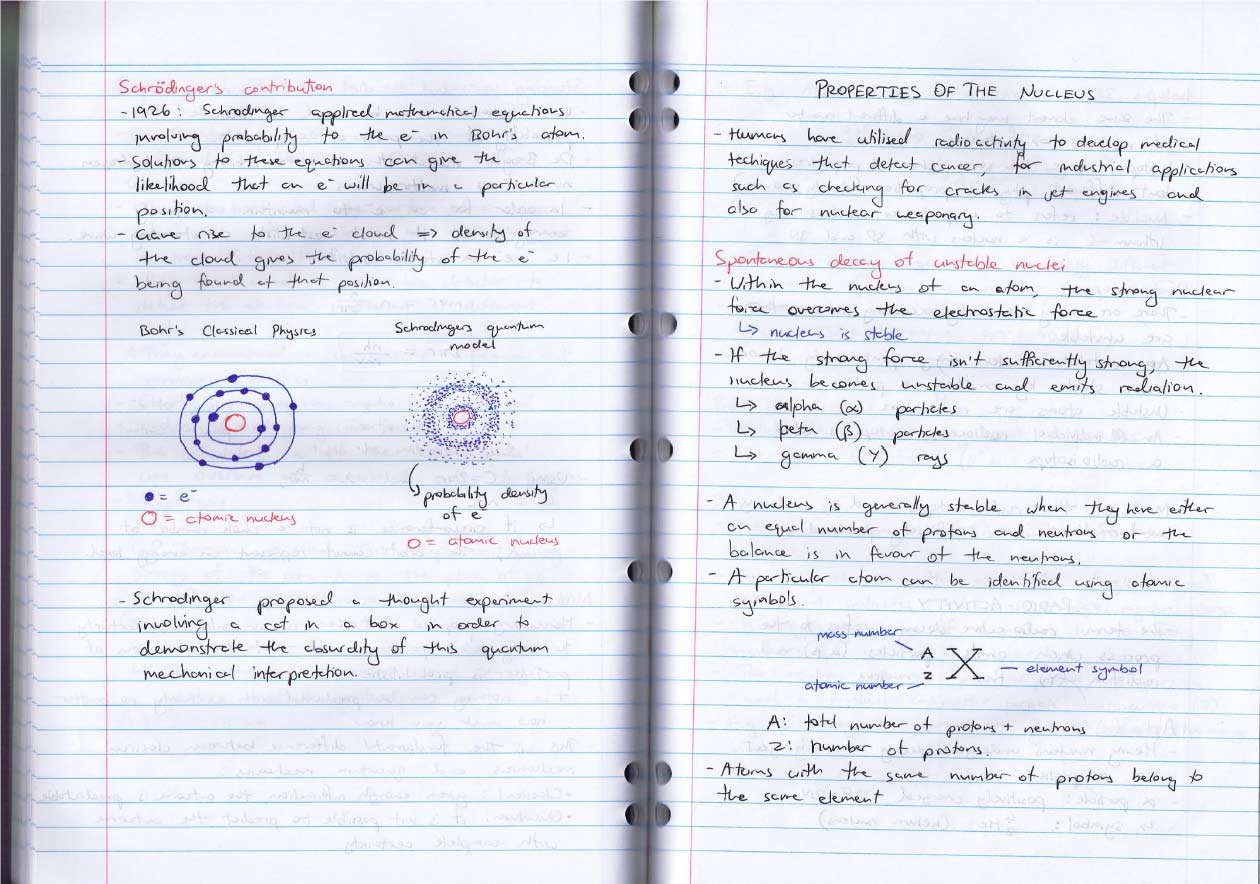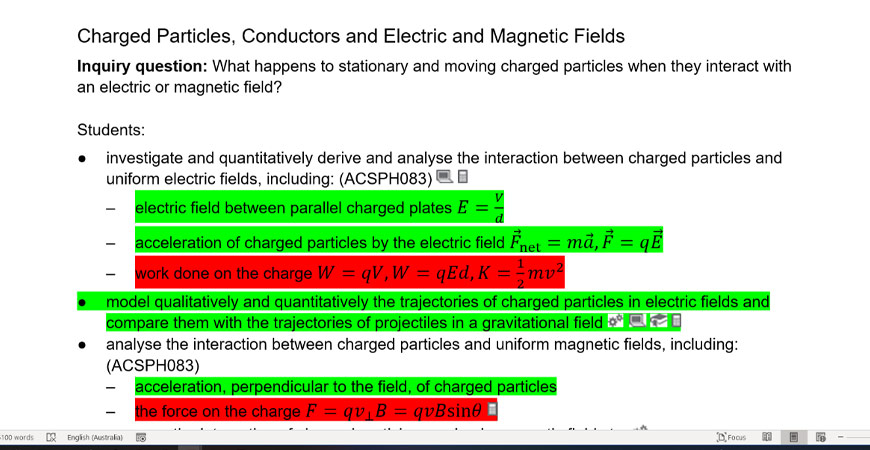Welcome to Matrix Education
To ensure we are showing you the most relevant content, please select your location below.
Select a year to see courses
Learn online or on-campus during the term or school holidays
Learn online or on-campus during the term or school holidays
Learn online or on-campus during the term or school holidays
Learn online or on-campus during the term or school holidays
Learn online or on-campus during the term or school holidays
Learn online or on-campus during the term or school holidays
Learn online or on-campus during the term or school holidays
Get HSC Trial exam ready in just a week
Get HSC exam ready in just a week
Select a year to see available courses
Science guides to help you get ahead
Science guides to help you get ahead
Have you been studying days and days on end but still manage to have missing gaps in your knowledge? Well, Kush has the answer for you. Read this article to see how he fills these missing holes to achieve Band 6's!

Join 75,893 students who already have a head start.
"*" indicates required fields
You might also like

Join 8000+ students each term who already have a head start on their school academic journey.
Let’s fill in your missing knowledge! In this article, Matrix alumnus and Girraween High graduate, Kush, explains how to use the syllabus for HSC success!
Kush Singhy
Girraween High School
Bachelor of Actuarial Studies and Bachelor of Information Technology (Macquarie University)
97.60
| Subjects | Assessment Mark | HSC Exam Mark | HSC Mark | Performance Band |
| Business Studies | 94/100 | 88/100 | 91 | 6 |
| English Advanced | 86/100 | 83/100 | 85 | 5 |
| Mathematics Extension 1 | 98/100 | 95/100 | 97 | E4 |
| Mathematics Extension 2 | 92/100 | 95/100 | 94 | E4 |
| Physics | 90/100 | 91/100 | 91 | 6 |
I scored my highest mark in Maths Extension 1. However, I most enjoyed Extension 2 because of the interesting concepts it involved.
I loved being able to delve deep into challenging and fascinating mathematical ideas using both problem solving & critical thinking, and then applying this learning into practical application.
Through this, I garnered a deeper understanding of Mathematics’ place in the real world.
Also, I really connected with my teacher and classmates, and had a lot of fun throughout the year, with a lot of laughs and lifelong memories.
However, the greatest obstacle I faced was the external HSC exam. This was by far the hardest Math test I had ever completed.
Overall, this was my favourite course and I am extremely happy with my result. And, ultimately, I exceeded my expectations in this challenging course.
I always struggled to get a good grasp on core concepts and ended up relying on rote learning instead.
I spent lot of time on small aspects of English which became tedious and uninteresting…
Meaning that the whole course became something which I didn’t enjoy.
Along with this, I didn’t enjoy spending long periods of time handwriting essays before tests. It often left me stressed out, hoping for it to be over.
I did however manage to pull through and get a mark which I am happy with. I’m glad I had this experience to teach me how to get through tough times.
Even though I didn’t like the subject, it was a valuable lesson to me in the long run.
Stay on top of your Maths Ext 1 studies like Kush did. With the Matrix Course, we guide you with clear and structured content, and provide you with quality resources and access to 1-1 tutoring throughout the term.
Ace Maths Ext 1 with Matrix+
Expert teachers, weekly quizzes, one-to-one help! Learn at your own pace, wherever you are.
How to use the syllabus for HSC success!
Let me just preface by saying this. Although it may seem obvious, I don’t see NEARLY enough students using the syllabus.
Literally every question you will ever see comes directly from the syllabus.
It is so crucial to know it inside out if you want to succeed in the HSC.
Keep in mind you will also need to take some extra steps on top of this, but I will now show you how to maximise your knowledge of the syllabus and where to go from there.
Before you start each topic in class, read and process the syllabus dot points for that topic. This will make it much easier to follow your teacher, and figure out which information is more important to process during class.
You will also gain an overall understanding of what is going to be covered in that topic.
Doing this helps you make connections and organise information in your brain as you absorb all the content.
However, make sure that you keep track of which dot points are being covered by your teacher as you learn it in class.
You have a bit of flexibility here, but it is still really important that you still follow the syllabus.
I recommend that you take rough notes during class. Then go home and add information from your textbook and other resources.
This will help make refine your notes to your style. Although, this process only take about 15-30 minutes per subject per night, it can go a really long way to helping you succeed.
How do you make those notes?
One extremely effective method of taking notes is to use a table with one column containing the syllabus dot point and the other column containing notes & examples for that dot point.
This will make your notes much more succinct and straightforward, and will also organise it in a digestible format. I especially recommend this format for Humanities subjects. Here is an example of my notes from Year 12 Business Studies:
You can also create a third column for case studies. However, I preferred to keep my case studies with the actual notes.
Even if you don’t decide to use this exact format (or you like to hand write your notes)…
It is still important to structure your notes according to the syllabus.
This will ensure that every single point is thoroughly covered.
Here is an example from my Physics notes – which I decided to hand write so I could draw diagrams easily:

If you want to do your best, effective note taking is crucial throughout the year.
It is important that you maintain a consistent nightly routine, where you go through all the content you learned in class.
This will allow you to organise the information in your brain and on the paper, so you can easily refer to it when exam time comes around.
Before you can start practising for an exam, it is important that you revise all the content that will be in the exam so that the practise questions don’t overwhelm you.
I began revising by thoroughly reading through all my notes alongside the syllabus to make sure that there aren’t any gaps or missing information.
This also gives me an opportunity to fix any errors/spelling mistakes and get a rough idea of what I need to know for the exam.
I would then print out my notes so I could constantly read through them and carry them around with me.
I liked have the option to write all over the page and highlight certain bits of information that I deemed important.
An effective way to ensure that I knew all the syllabus content was by using the Traffic Light method.
This method involves having the syllabus open while you are going through all your notes.
You then go through each dot point individually and decide whether you are 100% confident with it or not.
If you are confident with that dot point, and believe you can answer any question relating to it, then highlight that dot point on the syllabus with green (good to go). If you are not confident with it, use red (stop and revise).
This systematic method is an extremely effective revision method that boosted my confidence in my ability to answer almost every single question in an exam.
Here is an example of the Traffic Light method:

Once you have thoroughly revised all the content and covered every single syllabus dot point, you should start applying that knowledge to answering all the possible questions.
For the Humanities subjects, all the questions are just the syllabus dot points re-worded into a question format (even the essay questions).
This means you can actually use the syllabus to come up with questions. This is an effective way to cover every single type of question that can be asked.
There are also various resources online and in textbooks that organise Multiple Choice, Short Answer and Long Response questions by topic which are extremely useful to go through.
For Sciences and Mathematics, I recommend using a textbook that contains practice questions organised by topic (e.g. Checkpoints, Dotpoint and even the Matrix revision course books).
Whatever you use, your goal at the end of the day is to be able to answer a question on any syllabus dot point.
If you can’t confidently answer a certain dot point, go back to that topic and do some research in order to make sure you can answer it.
And after all of this preparation, you are finally ready to do past papers and practice exams. My advice is to do as many of these as you possibly can within the time that you have, but do not start doing them until you have finished all the previous preparation.
Throughout my HSC year, I noticed that a lot of students didn’t pay too much attention in class because they believed that they got more output in doing all the work at home in their own time.
Although this may have worked out for some of the top students, I believe that paying attention in class and listening to my teacher gave me a more holistic understanding of the concepts.
Even though textbooks cover all the necessary knowledge in a well-structured format…
They – the textbooks – aren’t able to explain beyond what is already written inside them.
On the other hand, teachers are able to explain in more depth. Because of their experience, they know the best ways to explain concepts to a student of your skill level.
This was especially helpful in Physics, where the concepts can get extremely complicated. By simply increasing the attention I paid to my teacher and asking more questions, I was able to increase my rank by over 10 positions.
I also achieve a Band 6 in a subject that I was expecting to achieve Band 5. This is why paying attention and relying on teachers is so important throughout the whole entire HSC year.
I was extremely happy with my performance throughout Year 11 and excelled in almost all of my subjects.
However, by the time Year 12 started I was feeling burnt out and began to notice my performance slowly dropping.
This left me discouraged and demotivated, which resulted in me significantly lowering my expectations for my final HSC mark.
However, at some point throughout the year, I realised that my output is going to be based on how much effort I put in. So, I decided to give it one last push instead of giving up.
This included:
I noticed improved results and began feeling the motivation I had during Year 11.
This gave me the strength to put in my greatest effort during the HSC exams and I definitely exceeded the expectations I had in the first half of the year.
Based on my experience is that it’s normal to feel burnt out and demotivated at some point.
However, it is important to rest up and revitalise during this low period, so, that once you decide to start exerting more effort, you have the energy to do so
I kept a diary of tasks complete with tick boxes. This helped me build habits.
The tick boxes next to each task made it satisfying to tick off completed tasks.
I even used this diary during the holidays to make a list of holiday goals.
Here’s a picture:
An essential habit that I maintained throughout all of Year 11 and 12 was a homework diary.
This was one of the best decisions I made.
It kept me organised and I was always on top of my work.
It was also extremely simple to use; I would just write down every subject I had for that day in the morning, and every time the teacher gave us work, I would write it down next the subject name.
I always had this diary in my bag or on my desk as it significantly improved my overall organisation and time management. I would definitely recommend using something like this.
For all of my subjects, I made sure I knew the syllabus very well. However, I took more specific approaches beyond that for each individual subject.
For Mathematics Ext 1 and 2, I always start preparing for an exam by doing the pre-exercise examples.
For example:
After doing these for every single exercise in the upcoming exam, I would then move on to doing past papers.
The reason I did only the pre-exercise examples is because they cover all the content I need to know in a quick and efficient way.
This meant that I can do as many past papers as possible afterwards
For Physics Theory exams, I completed questions in textbooks such as Checkpoints and Dot Point. They contain numerous practise questions organised by topic.
I found that these questions were extremely simple and effective. It streamlined my study process for Physics.
After completing the questions in these books, I would move onto past papers and try to do as many as possible.
Putting all of these strategies and tips together, I managed to not only improve my results and ranks, but also my quality of life.
I had a lot more time to relax and destress, and I could continue to do all of the things I enjoy such as basketball and guitar.
I managed to maintain high marks throughout the second half of my HSC, and this ultimately resulted in an ATAR that I was extremely happy with.
I did the Matrix Trial Prep course for Physics.
This definitely gave me the push I needed to excel in my trial exam and to carry this momentum through to my HSC.
My Matrix teacher and tutors provided very succinct and useful information in an efficient manner that didn’t waste any time.
This allowed me to focus my energy on the necessary content.
The practice questions also effectively covered all of the content. So, after completing all of them, I felt confident in all aspects of the Physics syllabus.
I would strongly recommend attending these Matrix courses if you need that push to excel in your exams.
In order to cope with stress, I simply just did things that I enjoyed doing… either by myself or with friends and family.
This included:
All of these allowed me to take some time off studying and gave me breathing space away from the books.
I could also clear my mind and think certain things through. This is great because my thoughts weren’t coming to me while I was in an overwhelming environment.
When I needed to stop myself from getting anxious or stressing out, I would just put my work down and get organised.
This includes:
Doing this would clear my mind and allow me to think properly before getting back to studying.
Doing this consistently can help you effectively manage stress throughout your HSC year.
I honestly had no regrets during my HSC and I feel like any student should aim to feel the same way.
Work as hard as you can, but don’t give up on the things you love.
Spend time with people who are close to you.
By the end of the year you should be able to tell yourself that you gave it your all and it doesn’t matter what mark you get at that point.
Whatever shortcomings or obstacles you face will teach you a lot about yourself and your resilience and will make the end result worth it.
It is definitely a tough year, but can also be one of the most enjoyable years of high school if you balance everything properly.
Written by Guest Author
We have regular contributions to our blog from our Tutor Team and high performing Matrix Students. Come back regularly for these guest posts to learn their study hacks and insights!© Matrix Education and www.matrix.edu.au, 2025. Unauthorised use and/or duplication of this material without express and written permission from this site’s author and/or owner is strictly prohibited. Excerpts and links may be used, provided that full and clear credit is given to Matrix Education and www.matrix.edu.au with appropriate and specific direction to the original content.